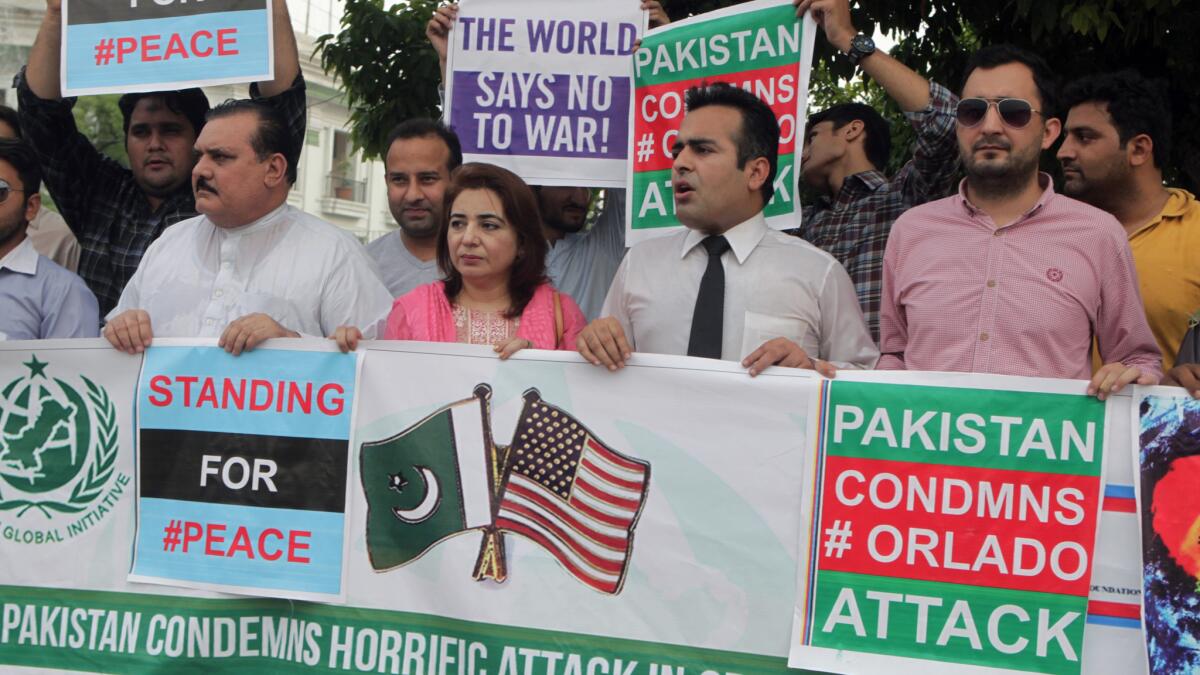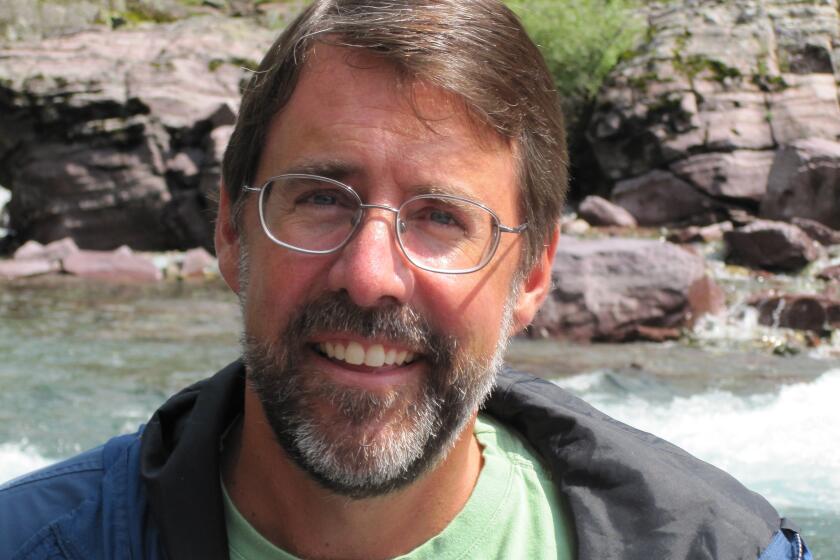Opinion: The LGBT community isn’t condemning Muslims after Orlando and neither should you

âYou can take my life, but you wonât stop our voice.â
That message was scribbled on a piece of cardboard outside New Yorkâs Stonewall Inn Sunday evening as mourners gathered together to honor the 49 dead and 53 wounded after a gunman opened fire at Pulse nightclub in Orlando, Fla., just hours earlier. The Florida gay bar, which was celebrating Latin Night on Saturday, is now the site of the deadliest mass shooting in U.S. history.
For LGBT people, the horrific bloodshed was a reminder that we are not equal in a country where our safety is not considered a priority: Just 18 statesâincluding the District of Columbiaâhave hate crime laws on the books that cover both sexual orientation and gender identity. Many law enforcement agencies routinely fail to report hate crimes to federal agencies.
For the Muslim community, however, the tragedy was a sign of the probable violence to come: After every act of violence attributed to a person of the Islamic faith, violent attacks against Muslims in the U.S. skyrocket.
On Dec. 2, a young couple who authorities say became radicalized by fundamentalist Islam gunned down 14 people at the Inland Regional Center in San Bernardino. Following the attacks, hate crimes against Muslims soared: 19 Muslims reported being victims of harassment or violence over a single 10-day period in December. Just hours after the shooting, the Al-Huda Islamic School in Hawthorne, a K-8 institution an hour away from San Bernardino, received a phone call claiming their school would be next.
The overwhelming bigotry directed at the Muslim community after San Bernardino capped what was an extraordinarily difficult time to be brown in America. The year was bookended by the attacks on Charlie Hebdo and the Bataclan Concert Hall in Paris, two tragedies that put Muslims in the crosshairs. Attacks on Muslim Americans tripled in 2015, the most violent year since the 9/11 attacks. That year saw 481 hate crimes against Muslims in the U.S.
42 percent of Muslim-Americans support legal marriage between same-sex partners, a rate more or less equal to Christians.
Prior to the attacks on the World Trade Center and Pentagon, the number of incidents in the U.S. motivated by anti-Islamic hate was very lowâbetween 20 and 30 each year. But in 2014, the last year for which we have solid data, there were 154 attacks on American Muslims.
An overwhelming majority of these victims are not radicals; they are your next-door neighbors, your coworkers and your friends. They are the man sitting next to you on the train or the woman walking home from the grocery store in her hijab. If their attackers hope to send a message that violent extremism will not be tolerated, all these actions serve to do instead is punish more innocent people.
America has a rich, vibrant Muslim communityâone as enormously diverse as it is largely moderate. In 2015, a Pew Research survey found U.S. Muslims to be tolerant of LGBT people: 42% supported marriage between same-sex partners, a rate that was more or less equal to Christians (44%) and higher than evangelicals (28%) or Mormons (40%). In the wake of the Pulse shooting, many Muslim groups have already spoken out against the violence, voicing their support for the LGBT community.
That hasnât stopped politicians like Donald Trump from reiterating their support for a ban on Muslims entering the United States. Some reports suggested that the Orlando shooter may have had ties to ISIS, which the Republican front-runner used to further an agenda that would outlaw âimmigrants from areas of the world with a history of terrorism,â as the Washington Post reported. In a Monday address from New Hampshire, Trump pointed the finger at Muslims for not doing enough to stop the shooters in Orlando and San Bernardino. âThey know whatâs going on,â Trump said, adding: âBut you know what? They didnât turn them in.â
The message at Stonewall on Sunday, the site of the 1969 riots that ignited the modern movement for LGBT equality, was very different. The loosely organized evening was a chance for the community to gather before politicians and entertainers flocked to the historic gay bar for a highly publicized event the following evening.
Monday was for the world; Sunday was for us.
The vigil was punctuated by speeches from activists, advocates and community members who argued for resilience in the face of struggle.
That togetherness was briefly interrupted by anti-Muslim bigotry. Mirna Haidar, a Lebanese refugee, gave a powerful speech on the discrimination she has faced both as a gender nonconforming person and as a member of the Islamic faith. Haidar further argued that the LGBT community must stand with Muslims. During her call for solidarity, a heckler began to yell, âThis is a Muslim issue!â The crowd, however, quickly silenced him.
While politicians attempt to exploit the Orlando tragedy to create more division and intolerance, this moment is an important reminder: Love always overpowers hate.
Nico Lang is the East Coast reporter for the Advocate. You can also read his work on Salon, Onion A.V. Club and the Guardian. Find him on Twitter @nico_lang.
Follow the Opinion section on Twitter @latimesopinion and Facebook
ALSO
A night of terror: How the Orlando nightclub shooting unfolded
More details about the terror databases Mateen was placed on
How the Orlando attack could mark a shift for gay Muslims
More to Read
A cure for the common opinion
Get thought-provoking perspectives with our weekly newsletter.
You may occasionally receive promotional content from the Los Angeles Times.










